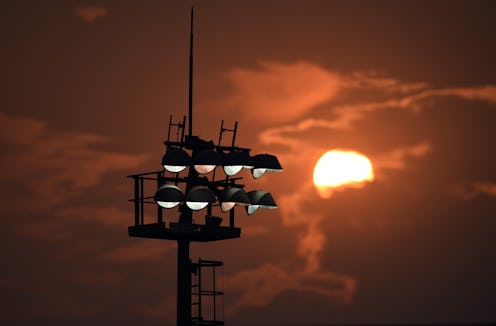News
When Do The Clocks Go Back?
We're nearly at that familiar, ritualistic time of year — that's right, we're approaching the end of Daylight Saving Time, when the clocks are finally set back to normal, and we all get some dark, dark evenings in store. Daylight Saving Time spans a little less than eight months, and it serves to keep the sun out longer later throughout the summer. intended as a low-level economic boost, among other things. So, when is the Daylight Saving Time over?
Luckily, you've got some time left to prepare, because the big day is still a couple of weeks away — Daylight Saving Time officially ends at 2:00 a.m. on Sunday, Nov. 1, at which point the clocks will "fall back," giving us all an extra hour to spend in bed, or hey, whatever you're up to at 2:00 a.m.
You'll then have a brief, glorious four months or so to enjoy your Daylight Saving Time-free existence, before its inevitable return on March 13, 2016. Of course, it's not a popular practice everywhere — there are some states that want to get rid of it altogether, and Arizona for one stays on Standard Time year-round, which sounds pretty luxurious, all things considered.
It's important not to view the back and forth switch too flippantly, because it's been linked to a variety of negative health effects, both physical and mental. According to Reuters, the research on gaining the hour back is more favorable than losing it — the adoption of Daylight Saving Time each spring brings an immediate surge in the likelihood of heart attacks, while the return to normal in the fall lowers that same risk.
In other words, it's high time we got back on the normal, unadjusted schedule, and who knows! Maybe wherever you live will decide to do away with it someday. For the rest of us, however, this is an unavoidable and intractable a situation as it gets. You can't very well opt out of operating on the same clock as every other business and institution in your town, city, or state, unless you want to miss out on an awful lot.
So, to recap: at 2:00 a.m. on Sunday, Nov. 1, you should move all your non-automatic clocks back to 1:00 a.m. — assuming you're even awake then, that is. Otherwise, you'll want to take care of it before you go to sleep, lest you wake up an hour earlier than expected or desired.
